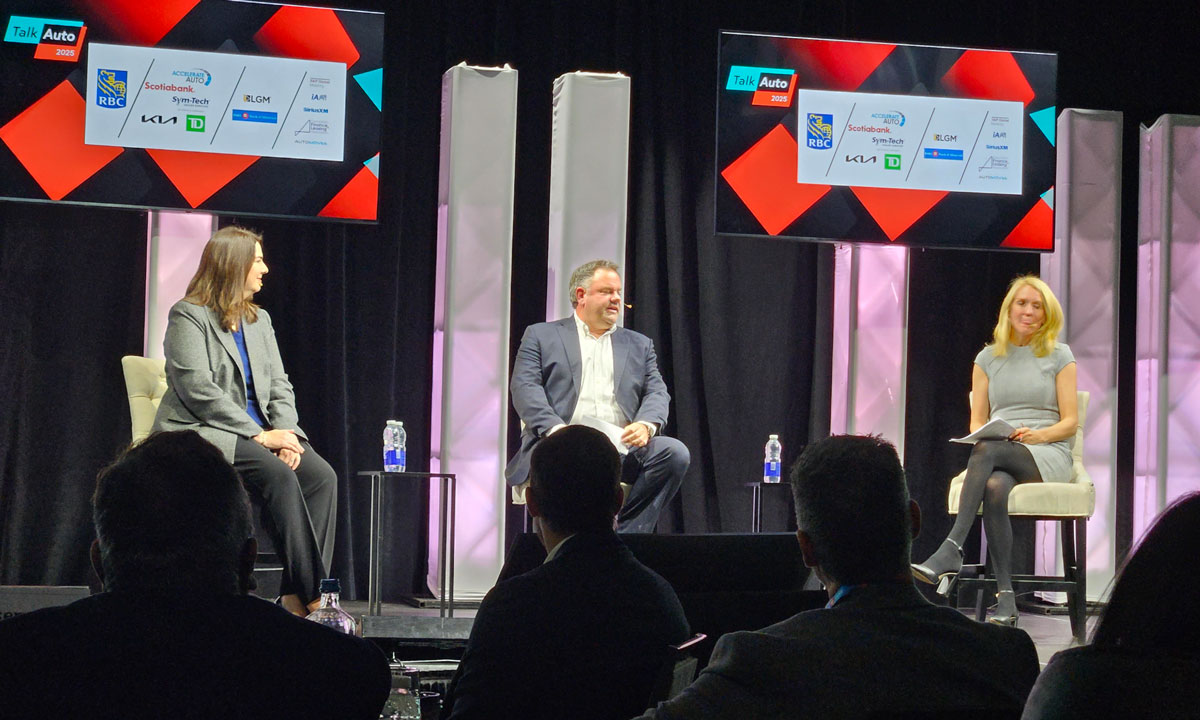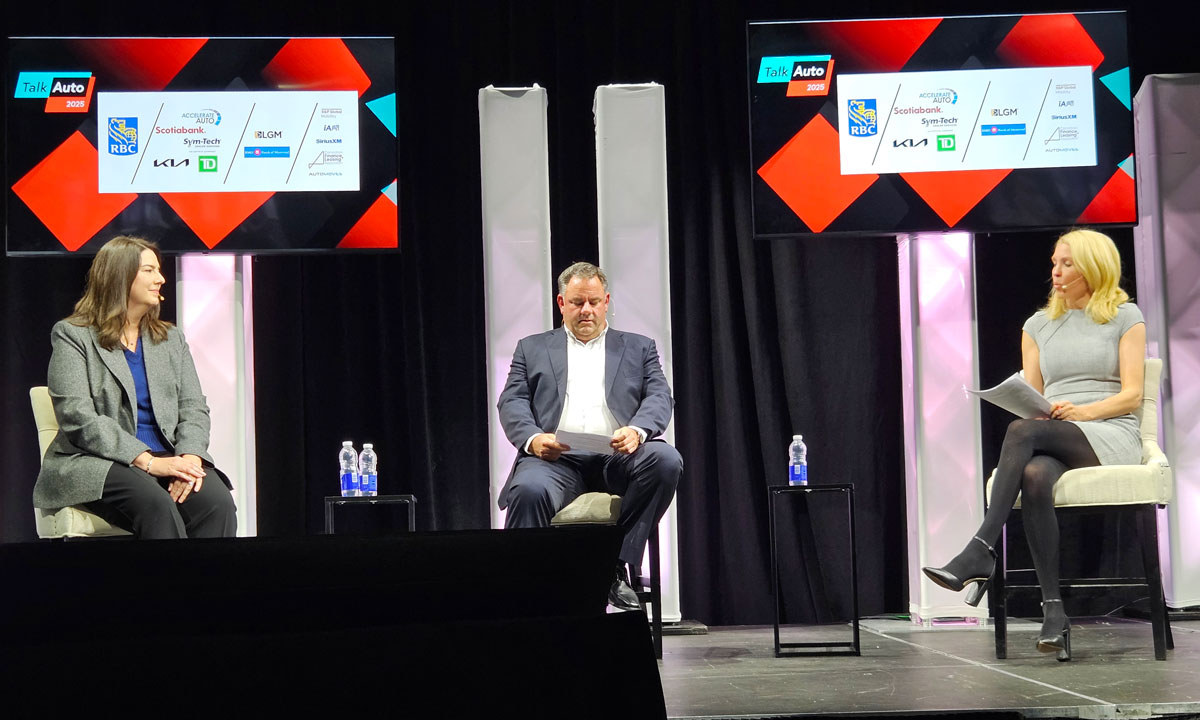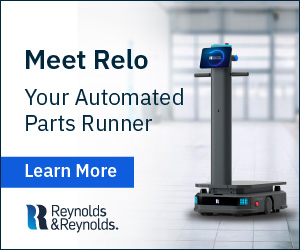The ongoing threat of fraud and the use of artificial intelligence are two of the biggest challenges dealers are facing, two automotive group executives said at the 2025 Talk Auto Conference.
Jamie Johnston, managing partner of Orangeville Honda, which is part of the Humberview Group, and Sarah Budd, vice-president, Budds’ Group of Companies, addressed fraud and AI in a roundtable discussion moderated by Amanda Pyette of Purpose Automotive on Wednesday at the Universal Event Space in Vaughan.
Johnston said the sophistication of fraud or attempted fraud by organized crime in stores is exceeding the ability of dealers to counteract it.
“It’s beyond us, it’s almost (undetectable) from our level,” said Johnston. “I want to view fraud and our relationship with the lenders as more of a teamwork. It seems to fall on one side or the other. I think we need better tools, better help, not just training at the dealership level because we have to put trust in our people to do the best they can. But we also need tools, whether it’s technology or assistance from the lenders, to identify fraud early.”
Budd said her company recently implemented some identification verification tools at their stores to protect against fraud. She agreed help from lenders is needed.
“A lot of the onus is on the dealers, and that makes sense because we’re the ones that meet the customers, but it requires tools and training more than just spidey senses, which is what we used to do,” said Budd. “You need actual technology now and training. It would be nice to think the lenders would help us with some of that training and maybe share in the cost of some of these tools that we have to put in. We’re not just protecting ourselves, we’re protecting the lenders as well.”
Johnston said fraud can happen on a five-per-cent basis every 30 days, but it can be defined differently, from complete false identification to inflated incomes that become part of the sales process.
“But it’s still fraud,” said Johnston. “To me, fraud isn’t just a business or something we pay attention to, it’s a cost line item on the statement. It costs me money every month for sure.”
He said it puts staff in a tricky position.
“You’re asking the people that make a living selling the car not selling the car to detect it and protect us,” said Johnston. “That’s not where their training is or their motivation.”
Budd said fraud happens more with luxury brands and models known for exports.
“The biggest ones we see at the dealerships and some of the most flagrant ones use false identities,” said Budd. “Someone comes in with a driver’s license that isn’t theirs, purchases the car under false identity and the deal gets funded. Before the bank even realizes what’s happened that car is out of the country. That’s the biggest one to defend against, but all the way down the line to the tiny, tiny, little things of stolen credit cards to pay a service bill and you get a charge back. It’s just everything.”
Budd said it would be great to bring the ecosystem of the lenders, the dealers and the vendors that provide the tools to guard against fraud together so there’s some consistency across the board.
“Because the biggest issue in a lot of dealerships is process, especially with larger groups,” said Budd. “For the lenders’ perspective it’s sometimes hard when you’re dealing with all these different vendors when it comes to fraud tools. Every time a fraud event happens and we go through the checklist usually there’s a step that was skipped. There are ways to mitigate the risk, for sure, but it’s more work.”
Budd added it would be great if lenders could all share information and the tools and tricks. She said the Canadian Automobile Dealers Association has been good at putting out tools for dealers, but the key is putting the processes in place and following them.
Pyette said AI has become the latest buzzword in retail and the feeling among dealers is how it is going to sell more cars and move more inventory?
“For me, it doesn’t replace people, which I think is a good thing, but it does create efficiency or replace inefficiency,” said Johnston.
Budd quoted from an author who said she wanted AI to do her dishes and laundry so she could focus on making art.
“I feel like we need to figure out what part of our business is the dishes and laundry and what part of it is the art,” said Budd.
She added it could help synthesize data and help with customers, many of whom speak different languages, and communicate in real time.
“There’s a lot of great uses for it, but we’re just at the bottom of the mountain right now,” said Budd.














